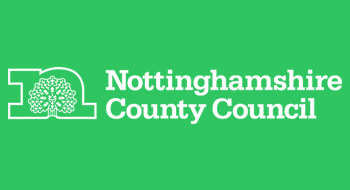

South Broxtowe
School Behaviour & Attendance Partnership
Anxiety
It is normal for children to feel worried or anxious from time to time – such as when they're starting school or nursery, or moving to a new area. But for some children, anxiety affects their behaviour and thoughts every day, interfering with their school, home and social life.
Things that happen in a child's life can be stressful and difficult to cope with. Loss, serious illness, death of a loved one, violence, or abuse can lead to some children to become anxious. Learned behaviours can often be associated with growing up in a family where others are fearful or anxious also can "teach" a child to be afraid too. While anxiety symptoms are common and even expected after a disturbing experience, over time most children bounce back from them. One reason for that might be that anxiety symptoms are so variable. Children with generalised anxiety often feel overwhelmed with worry, and some have physical symptoms such as headaches or stomachaches.
Severe anxiety doesn't go away. Anxious children can be irritable and demanding. They can also be a source of extreme worry for parents. In addition to this, it often takes a great deal of patience for parents to see that behind the difficult behaviour there is anxiety and uncertainty. Many parents will respond angrily to their children’s behaviour, when what the children want is for their parents to be calm, to know exactly how they are feeling and why. If parents seem not to understand, children can feel that the parents are ignoring their feelings on purpose, which can, in turn, exacerbate their difficult behaviour. It is important for parents to try and talk calmly to children about the things that are worrying them, and to reassure them whenever possible.
Symptoms of anxiety in children
Signs to look out in your child are:
-
finding it hard to concentrate
-
not sleeping, or waking in the night with bad dreams
-
not eating properly
-
quickly getting angry or irritable, and being out of control during outbursts
-
constantly worrying or having negative thoughts
-
feeling tense and fidgety, or using the toilet often
-
always crying
-
being clingy
-
complaining of tummy aches and feeling unwell
Nottinghamshire County Council Educational Psychology Service
Finding it hard to get your child into school? Guidance for parents
NottAlone
NottAlone has lots of resources and information regarding children and young people's mental health. NottAlone Live is a free exclusive invite-only event as part of Children’s Mental Health Week in February.
Anxiety Management
Click here for slides taken from an Anxiety Management Workshop

.jpg)


